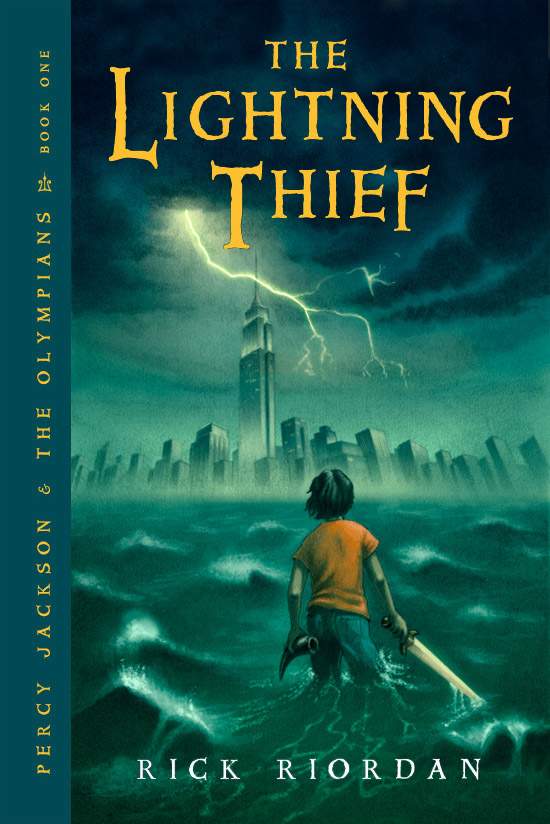SLIS 5420/ Module 8/ March 4-March 11
Percy Jackson and the Olympians: The Lightning Thief
By Rick Riordan
Bibliography: Riordan, R. (2005). Percy Jackson and the Olympians: The Lightning Thief. New York, NY: Hyperion Books
Summary:
The Lightning Thief is the first book in Rick Riordan's Percy Jackson and the Olympians series. In this book Percy learns that he is the son of Poseidon and a demigod. Percy's life takes a drastic change due to this knowledge soon he finds himself at Halfblood Hill, an academy/summer camp for the children of the gods, where they can train and learn. It isn't long, however, before Percy must set out on a quest with his friends Grover, the satyr, and Annabelle the daughter of Athena. Someone has stolen Zeus' master lightning bolt and all evidence leads to Percy. Percy must find the lightning bolt and return it to Zeus before the summer solstice in order to prevent a war among the gods.
Impressions:
I chose this book off of the list because it is always very popular at the library in which I volunteer. I wanted to see what the big deal is. I have always been a fan of Greek and Roman myths, so I really liked that aspect of the book. Rick Riordan manages to root his characters and universe in these myths while also making his book seem fresh and new. I liked how Percy and the other demigods were often diagnosed with ADHD and dyslexia because their brains are actually "hardwired for ancient Greek". Little nuances like that make the book seem more realistic. The writing did seem a little juvenile to me, but I am not the author's target audience and so that first person sarcasm and attitude must appeal to elementary and middle school readers since this series is a best seller.
Professional Review:
Edgar Award–winning Riordan leaves the adult world of mystery to begin a fantasy series for younger readers. Twelve-year-old Percy (full name, Perseus) Jackson has attended six schools in six years. Officially diagnosed with ADHD, his lack of self-control gets him in trouble again and again. What if it isn’t his fault? What if all the outrageous incidents that get him kicked out of school are the result of his being a “half-blood,” the product of a relationship between a human and a Greek god? Could it be true that his math teacher Mrs. Dodds transformed into a shriveled hag with bat wings, a Fury, and was trying to kill him? Did he really vanquish her with a pen that turned into a sword? One need not be an expert in Greek mythology to enjoy Percy’s journey to retrieve Zeus’s master bolt from the Underworld, but those who are familiar with the deities and demi-gods will have many an ah-ha moment. Along the way, Percy and his cohort run into Medusa, Cerberus and Pan, among others. The sardonic tone of the narrator’s voice lends a refreshing air of realism to this riotously paced quest tale of heroism that questions the realities of our world, family, friendship and loyalty. (Fantasy. 12-15)
Library Setting:
This book would work well as a tool to introduce the school subject of Greek mythology. It would make a good part of a display on Greek and Roman myths as well as a display on popular or new series for middle school and elementary readers.
Reference Review: Kirkus Reviews. (2012). Percy jackson and the olympians: the lightning thief. Retrieved from http://www.kirkusreviews.com/book-reviews/rick-riordan/lightning-thief/
Image: http://images2.wikia.nocookie.net/__cb20120426104003/olympians/images/f/f8/The_Lightning_Thief-1.jpg

No comments:
Post a Comment